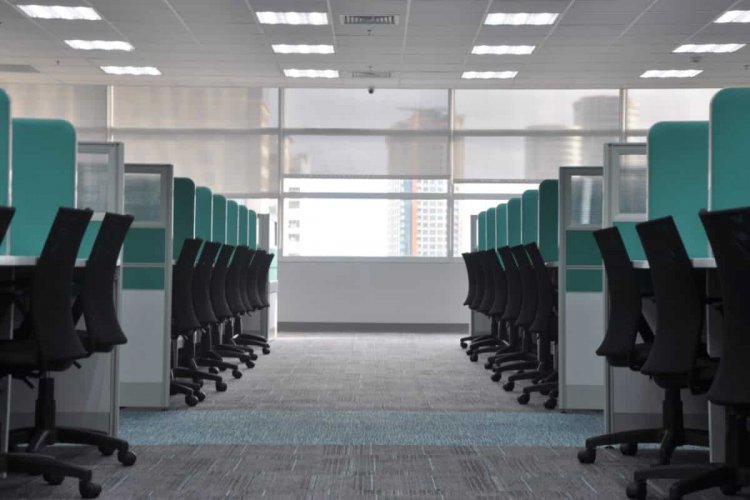The permeability of our world has resulted in the pandemic deeply impacting our behaviours, wellbeing, and collective health. We cannot deny that the crisis has challenged our lives phenomenally, but at the same time, it has taught us important lessons for life.
Two-way Street
Employees on the shop floor, supervisors and mid-level managers lean on the senior management to not only navigate the crisis but also for their safety, wellness and financial needs. It is not an easy ride for the top brass who walk on a tightrope, managing the dire state of finances and business on the one hand and keeping the workforce cushioned against terrible shocks on the other hand.
Let us face the fact that leaders are under immense pressure to revive businesses, and not all companies are doing well. “Apparently, virtual town-halls and meetings are great for ideas, but when you want to share something in confidence, you need to find out where your safe spaces are. Every meeting is not a safe space, because not everyone is at the same level of trust especially in the big meetings. Technology itself is very sequential. That is, people have to speak one at a time and then there is a lot of silence,” shares Roland Ruiz, Managing Director of DDI.
Yeah! The foundations of a collaborative two-way street are trust and empathy, the perfect blend for a sustainable BCP and new normal. Raymond Victorino, HR Talent Management Head, Samsung Electronics, shares, “Of course, during this time of crisis, leadership is very important. However, at the same time, self-leadership of every individual is consequential to inch towards success.”
People’s Safety is Priority
“Prima facie – our goal is to keep everyone safe, for which we are implementing a very strict protocol at the workplace that goes beyond the Government’s requirement. For instance, every 30-minutes there is sanitation of doorknobs, handles and railings. Our purpose is not just compliance but genuinely winning employees’ trust and support,” shares Christine Dyan Labanda, VP-HR and Admin of Lazada Group.
The food manufacturing industry falls within the essential services category, and that is why, leaders have paid prodigious attention to designing a strategy for employees’ safety and communicating the same at the corporate office and the shop floor. “We always had ‘Life Saving Goals’ at the factory, but now the same has been amended to include precautions required on account of COVID-19. We have taken a leap not only to ensure that our staff uses PPE in our premises but also during field sales. Our endeavour is to not only make our employees careful at work, but also be cautious and responsible within the community,” shares Sam Santos, Country HR Head of Froneri.
Then there are also organisations such as LJMB Consulting, where leaders are in no hurry to open their workplaces. COVID-19 has induced a significant change in the mindsets of everyone, including the clients. Just like tidal waves are capable of uprooting everything in their way, the pandemic-led catastrophe has proved that all aspects of business are transformed by a collective behavioural change amongst all stakeholders of business.
Louie John Banta, Chief Consultant of LJMB, shares, “Cascading to employees the importance of safety and mindfulness is a priority at this point of time, especially to avoid a second surge. We are slowly progressing towards scheduling employees’ presence in the workplace based on days of the week (MWF or TTS) and hours—early morning shifts or evening shifts. Visual reminders are placed everywhere to shape safety-oriented behaviours in this new normal. Of course, it is the supervisors who are the first line of support to employees in this transition back to work.”
Enhanced Employee Touchpoints
It is quite clear that a cohort of employees across industries, in every organisation, end up feeling helpless and left out despite numerous virtual town halls and meetings being planned by the leaders. Solutions such as one-on-one meetings, continuous updates through WhatsApp, taking time out to eat and exercise together, virtually, are just a few of the many measures leveraged by these leaders — Christine, Louie, Sam and Roland — to reduce gaps in engagement during WFH.
Raymond facilitated the discussion in the HireXP Virtual Roundtable and could not agree less with Louie, who stressed on the need for empathetic leadership, characterised by AVA (availability, visibility, approachability and accessibility).
Apparently, HireXP’s digital solution ‘Amara’ helps leaders achieve AVA. Amara is an AI chatbot that empathetically reaches out to employees, continuously seeking their responses on relevant questions, and helping the CHRO peep into the minds of the most withdrawn and inward-looking staff.
Christine talked about balancing the scale of responsibility, between the workforce on one end and the business stakeholders on the other. Amara empowers the CHRO to elevate employees at centre stage and develop the people-first attitude.
In addition, Sam underlined the importance of communication during the crisis and exploring all means possible to regularly connect with the employees.
However, with Amara’s superior sentiment analysis, leaders receive robust insights into how employees feel at a particular point of time, therefore identifying those who are disengaged and emotionally unsatisfied.
“Lot of uncertainties exist, but leaders are at the forefront looking towards the horizon, giving people the hope that there is a way forward,” states Roland. The forward-looking management has been pro-actively opting for digital tools to aid the process of employee engagement, but the crisis has simply expedited the transformation process by announcing that the future of work is here!

















